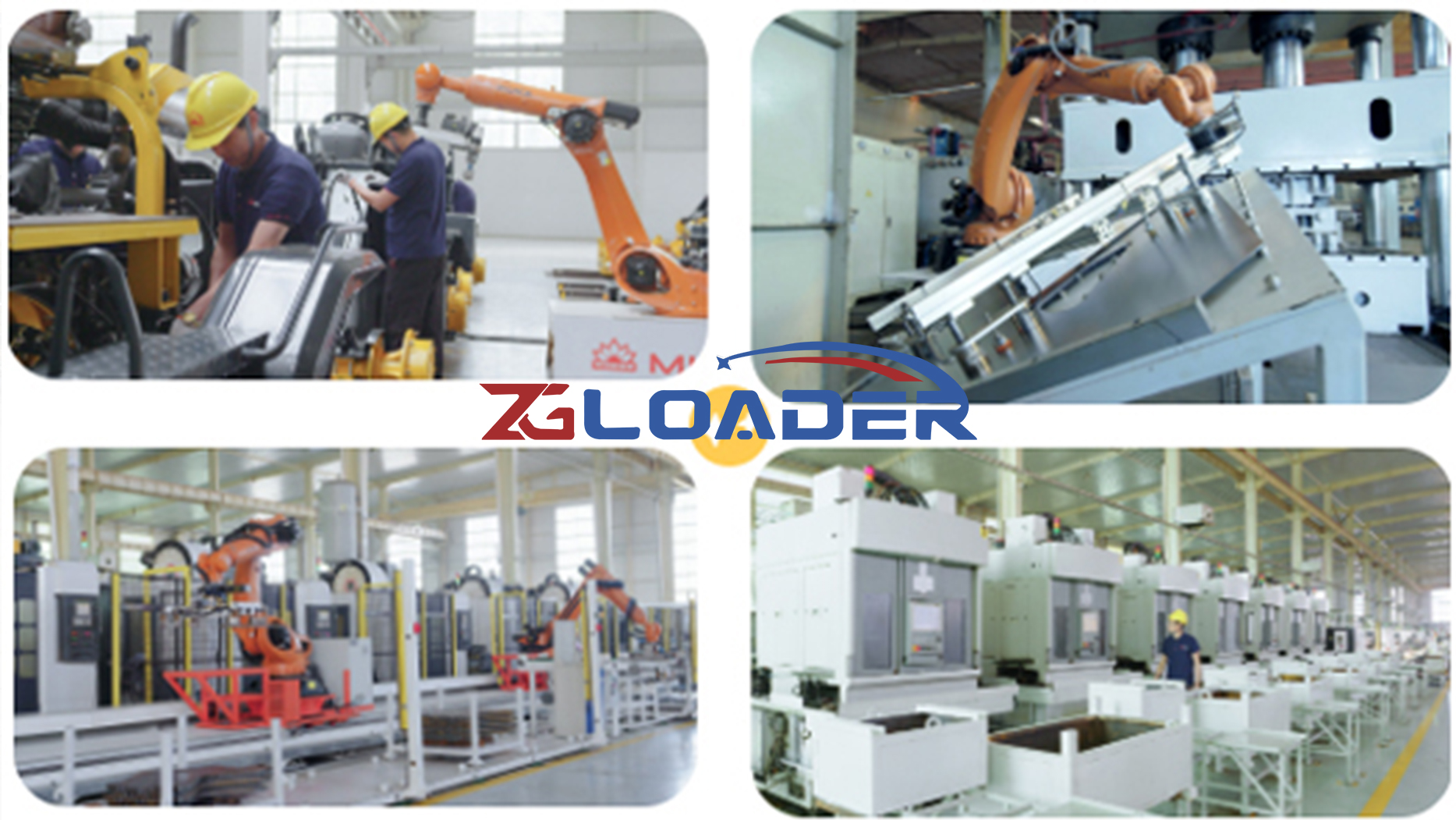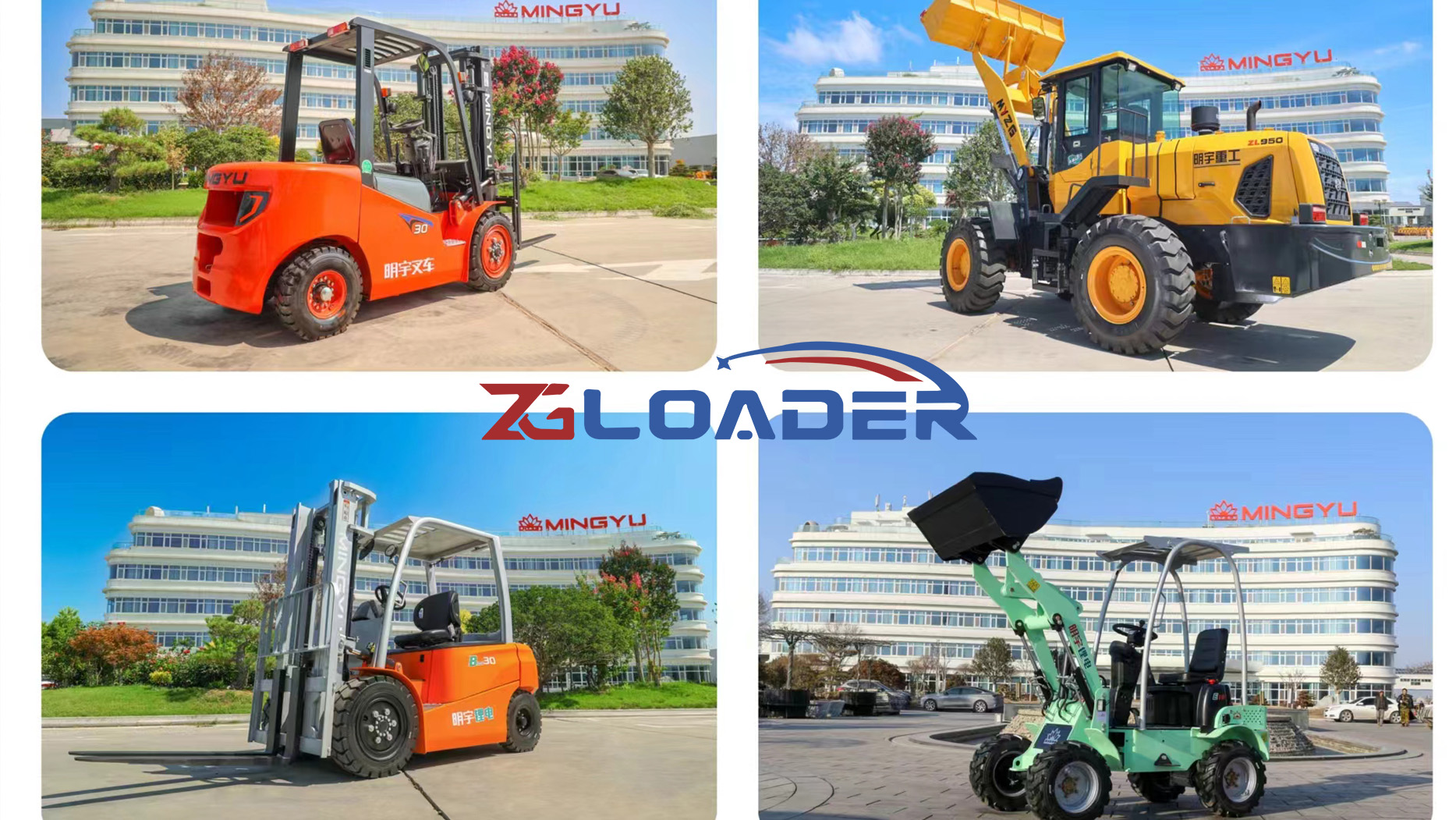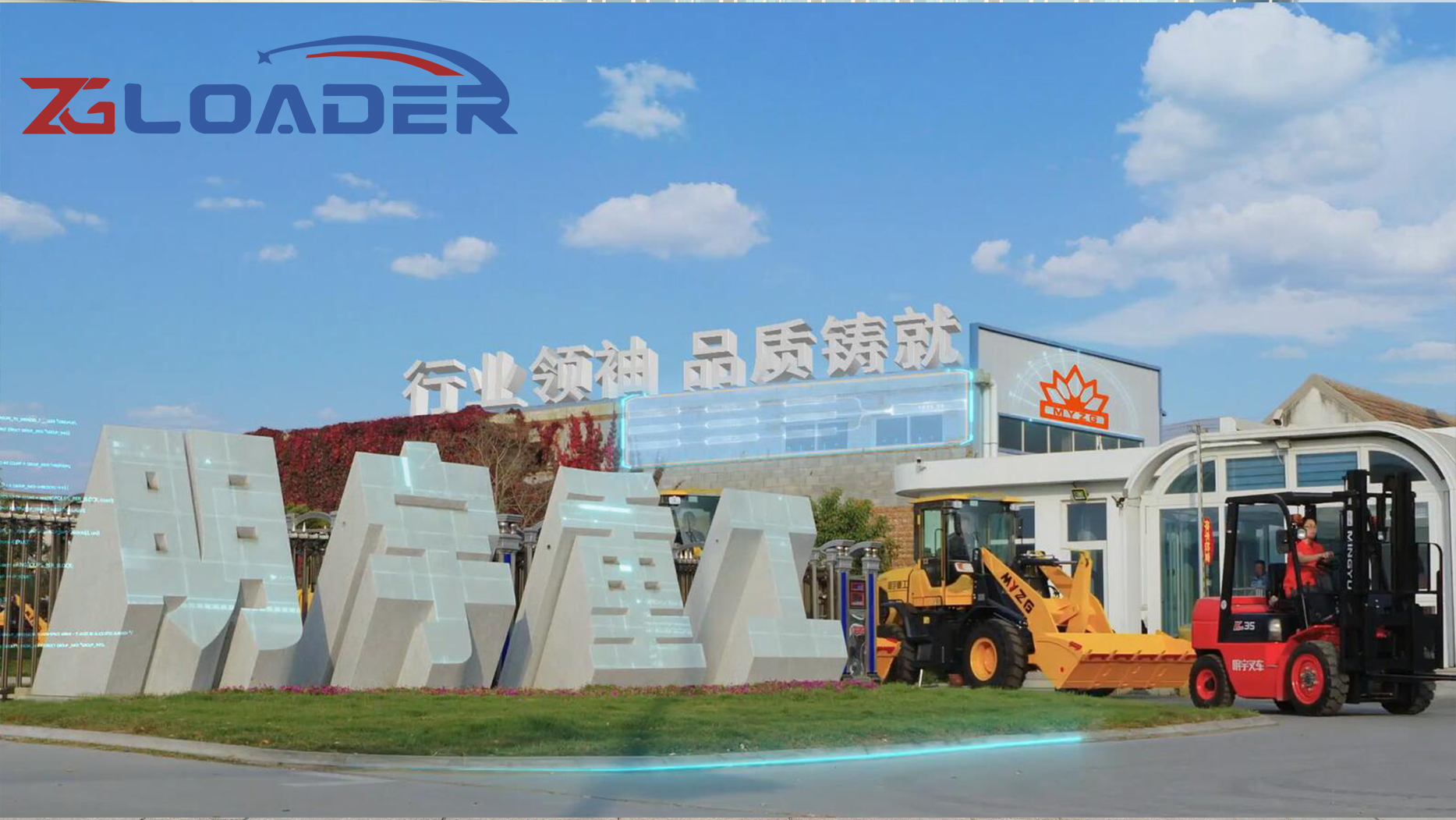I. Introduction
John Deere is a globally recognized name in the agricultural and construction equipment industry, synonymous with quality, innovation, and reliability. Their wheel loaders are widely used in various sectors, playing a vital role in construction sites, quarries, and agricultural operations. Understanding the origins of these machines, specifically where they are manufactured, can provide valuable insights into their quality, availability, and overall value proposition.
This article will delve into the manufacturing locations of John Deere wheel loaders, providing a comparative analysis with Mingyu, a prominent player in the construction equipment market. By examining factors like manufacturing processes, quality control, performance, and pricing, we aim to assist readers in making informed decisions when considering wheel loader options.
II. Where Are John Deere Wheel Loaders Made?
John Deere boasts a vast global manufacturing network, with facilities strategically located across North America, Europe, and other regions. This extensive network allows them to effectively serve diverse markets and respond to regional demands.
Key Manufacturing Hubs: While specific locations may vary, key manufacturing hubs for John Deere equipment often include facilities in the United States, Canada, and Europe.
Manufacturing Locations for John Deere Wheel Loaders: While precise information on the specific manufacturing locations for each wheel loader model may be subject to change, John Deere likely utilizes a combination of facilities across its global network for wheel loader production.
Factors Influencing Manufacturing Location: Several factors influence the decision of where to manufacture specific models. These include:
Market Demand: Production often concentrates in regions with high demand for specific models.
Logistics and Supply Chain: Proximity to key suppliers and efficient transportation networks are crucial for cost-effective production.
Cost of Production: Factors like labor costs, energy costs, and access to raw materials significantly impact production costs and influence manufacturing location decisions.
Government Regulations and Trade Agreements: Government regulations and trade agreements can also influence the choice of manufacturing locations.
III. Mingyu: A Rising Competitor
Mingyu is an emerging force in the construction equipment market, gaining recognition for its competitive pricing and focus on specific market segments. While specific details about Mingyu's manufacturing locations may be limited, it's likely that they have a strong manufacturing presence in Asia, leveraging cost-effective production and a focus on emerging markets.
Key Strengths of Mingyu:
Competitive Pricing: Mingyu often offers competitive pricing on its equipment, making it an attractive option for budget-conscious buyers.
Focus on Specific Markets: Mingyu may specialize in certain market segments or offer specialized models tailored to specific regional needs.
Potential for Innovation: As a newer player, Mingyu may be more agile in incorporating new technologies and innovations into their equipment.
Mingyu's Global Reach: Mingyu is likely expanding its global reach, with a growing presence in markets outside of its traditional regions. This expansion into new markets, including North America, presents a significant challenge to established players like John Deere.
IV. Comparing John Deere and Mingyu
Quality and Reliability
John Deere: John Deere has a long-standing reputation for producing high-quality, reliable equipment. Their focus on rigorous quality control, advanced engineering, and robust manufacturing processes contributes to their reputation for durability and longevity.
Mingyu: While Mingyu is a relatively newer player, they are continuously striving to improve quality and reliability. Their focus on specific market segments and continuous product development suggests a commitment to meeting customer expectations.
Component Sourcing: The quality of components used in manufacturing significantly impacts overall quality and reliability. Both John Deere and Mingyu likely source components from a variety of suppliers, with a focus on quality and performance.
Performance and Features
John Deere: John Deere wheel loaders are renowned for their powerful engines, smooth hydraulics, and advanced features. They offer a wide range of models to suit diverse applications, from general construction to specialized tasks.
Mingyu: Mingyu likely offers a competitive range of wheel loader models with varying power outputs, lifting capacities, and available attachments.
Direct Comparison: A direct comparison of specific models from both brands is crucial to assess performance and feature differences. Factors such as engine power, lifting capacity, maneuverability, and available attachments should be carefully considered.
Pricing and Value

Competitive Pricing: Mingyu often offers more competitive pricing compared to John Deere, making them a more attractive option for budget-conscious buyers.
Total Cost of Ownership:
John Deere: John Deere may have a higher initial purchase price but may offer superior long-term value due to factors like better resale value, lower operating costs, and reduced maintenance requirements.
Mingyu: While the initial purchase price may be lower, factors such as long-term reliability, service costs, and parts availability should be carefully considered when evaluating the total cost of ownership.
Service and Support
John Deere: John Deere boasts a well-established global dealer network, providing access to comprehensive service and support. This includes readily available parts, skilled technicians, and a strong customer service network.
Mingyu: The availability and quality of service and support for Mingyu may vary depending on the region and the dealer network.
Building Relationships: Establishing strong relationships with dealers for both brands is crucial. Factors like service quality, parts availability, and customer service responsiveness should be carefully evaluated when making a purchasing decision.
V. Choosing the Right Wheel Loader: Factors to Consider
Application and Usage: The specific application and intended usage of the wheel loader will significantly influence the best choice.
Workload: Consider the volume and type of material to be handled, the frequency of use, and the duration of typical work shifts.
Terrain: Evaluate the type of terrain the wheel loader will operate on, including factors like slope, ground conditions, and obstacles.
Operating Environment: Consider the operating environment, such as temperature extremes, dust, and other environmental factors.
Budget and ROI:
Calculate the Total Cost of Ownership: Analyze the total cost of ownership for each option, including purchase price, operating costs (fuel, maintenance), and potential resale value.
Calculate Return on Investment (ROI): Evaluate the potential return on investment for each option, considering factors like productivity gains, reduced operating costs, and long-term value.

Dealer Relationships:
Evaluate Dealer Networks: Assess the strength and reliability of the dealer networks for both John Deere and Mingyu.
Consider Service and Support: Evaluate the availability and quality of service and support provided by each dealer, including parts availability, technician expertise, and customer service responsiveness.
VI. Conclusion
Choosing between John Deere and Mingyu wheel loaders requires careful consideration of various factors. John Deere boasts a strong reputation for quality, reliability, and a robust service network, while Mingyu offers competitive pricing and a growing market presence.
The best choice ultimately depends on individual needs and priorities. Factors such as application, budget, and the availability of reliable service and support will play a crucial role in the decision-making process.
Disclaimer: This article provides a general comparison and should not be considered financial or investment advice.
Post time:Dec.25.2024

